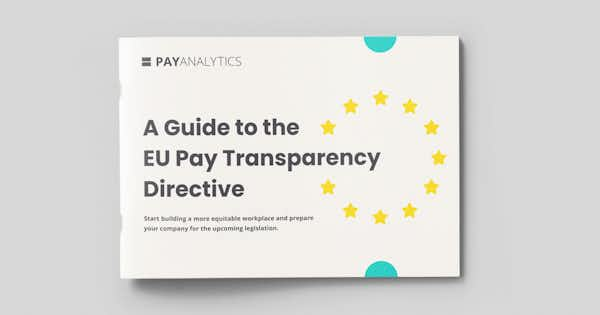Preparing for the EU Pay Transparency Directive | Download our E-book for free
Nevada Pay Transparency Law
Nevada's pay disclosure law prohibits the reliance on wage history and mandates wage disclosure after interviews. In this article, we offer a bite-sized overview of the law's major components for employers.

Valley of Fire, Nevada, USA
The legislation
In our latest article in our series on local requirements, we turn our attention to Nevada, where Senate Bill 293 has underscored the state's dedication to bolstering pay transparency and promoting fairness within the workplace. This law, effective from October 1, 2021, aligns Nevada with the nationwide movement aimed at rectifying pay disparities and fostering equity. By prohibiting the reliance on wage history and mandating wage disclosure after interviews, Nevada's pay disclosure law strives to create a more equitable environment for job applicants, drive progress in pay equity, and cultivate transparency and accountability in compensation practices.
What employers does the Nevada pay transparency law apply to?
Senate Bill 293 applies to private employers, employment agencies, and public employers.
Key requirements of the Nevada pay transparency law (Senate Bill 293)
There are two main components to Nevada’s Senate Bill 293: Salary history ban and wage range disclosure.
We discuss the key requirements below.
1. Salary history ban
The law imposes restrictions on employers regarding the inquiry of an applicant's salary history during the hiring process. Under the new law, employers are prohibited from:
- Seeking the wage or salary history of an applicant.
- Using an applicant's wage or salary history to determine employment offers or compensation rates.
- Refusing to interview, hire, promote, or employ an applicant based on their refusal to disclose wage or salary history.
- Discriminating against or retaliating against an applicant for not providing wage or salary history.
Nevada's salary history ban is particularly stringent. Unlike some other bans, it does not provide an exception for considering voluntarily shared salary information by applicants. This means that even if employers or staffing agencies unintentionally come across an applicant's salary history, they are prohibited from using that information in employment or compensation decisions.
However, it is important to note that employers are still permitted to ask applicants about their compensation expectations.
2. Wage range disclosure
Employers are obligated to disclose the wage or salary range or rate for a position to:
- Job applicants who have undergone an interview for the position;
- Current employees who are seeking promotion or transfer to that position, given that the employee:
- Applied for promotion or transfer to the position;
- Completed an interview for or been offered the promotion or transfer; and
- Requested the wage or salary range or rate for the position.

What are the enforcement mechanisms in place and the penalties for non-compliance?
Employers who fail to comply with the new law may face various penalties, which include:
- Civil actions initiated by aggrieved applicants.
- Civil penalties for violating the law.
- Actions taken by the Labor Commissioner.
- Administrative penalties to cover investigation costs and attorneys' fees.
In case of a violation, individuals are required to file a complaint with the Nevada Labor Commissioner. The Commissioner will investigate and, if a violation is confirmed, may recover investigative costs and attorneys' fees, as well as impose an administrative penalty of up to $5,000 per violation. After 180 days from the complaint filing, individuals can request a right-to-sue notice from the Labor Commissioner, and they have 90 days to initiate a lawsuit against the party mentioned in the complaint. Failure to file within this timeframe will result in the claim being time-barred.
How can PayAnalytics help Nevada employers meet Senate Bill 293 requirements?
PayAnalytics supports companies worldwide in their pay equity journey, whether they are just starting or have been conducting pay equity audits for years. It’s a global solution adaptable to all primary regulatory environments, including Nevada’s and the U.S. more broadly.
With PayAnalytics, Nevada employers can easily:
- Get a comprehensive overview and in-depth understanding of their current salary structure.
- Create a framework to compare different jobs and employee characteristics based on standard and objective criteria.
- Conduct a pay equity analysis and measure and monitor pay gaps by any demographic variable.
- Address any identified pay disparities, correct pay discrepancies, and close pay gaps by making the appropriate changes suggested by the software, while understanding the associated costs.
- Gain valuable insights into pay practices and policies that may be contributing to pay disparities.
- Formalize and document pay policies to better respond transparently to candidates’ or employees’ requests for compensation information.
- Prevent pay disparities and sustain fair pay with ongoing decision support.
- Proactively reduce the risk of non-compliance and minimize the cost of remediation by conducting regular pay equity assessments.
- Report and share pay equity information with a user-friendly, flexible reporting feature.
Drop us a line to learn more about how we can help U.S. and Nevada employers comply with local regulations.
Not quite ready yet? Check out our blog on the benefits of pay transparency for a primer and discover what our software can do.
Sources
The information on this page is not intended to serve and does not serve as legal advice. All of the content, information, and material in this article are only for general informational use. Readers are advised that this information, legal or otherwise, may not be up-to-date.





